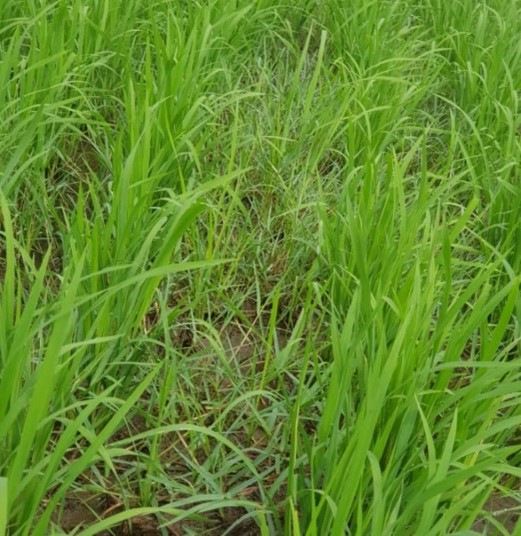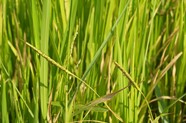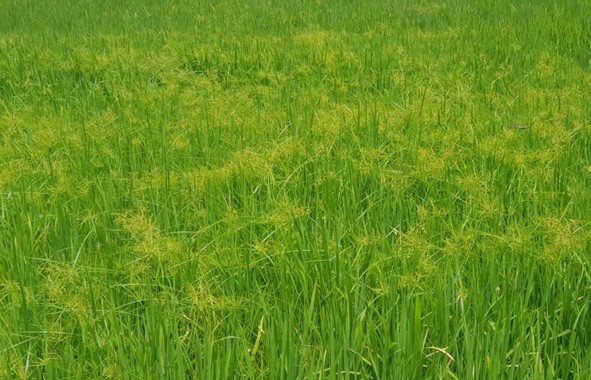Battling the Weeds: Promoting Sustainable Rice Production in the K Rice Belt


The Council for Scientific and Industrial Research–Crops Research Institute (CSIR-CRI), with financial support from the Korea Project on International Agriculture (KOPIA) under the Rural Development Administration (RDA), is implementing a project focused on Integrated Weed Management (IWM) in rice production within the Dawhenya Irrigation Enclave (K Rice Belt).
A key objective of this initiative is to identify weed species of economic importance to inform the development of effective, sustainable weed management strategies for rice cultivation.
Through interviews with thirty (30) farmers and close monitoring of sixteen (16) rice fields, five major weed species of economic concern were identified. Farmers ranked these species based on the difficulty of control (chemically or manually) and their rapid growth rate. Field observations during the 2025 major cropping season further confirmed the widespread occurrence and density fluctuations of these weeds across different rice growth stages. This information provides valuable insight for designing, targeting, and timing weed control interventions.


Economically, these weeds reduce rice yields by competing for nutrients, water, and sunlight, while also harboring pests and diseases. Their persistence increases the cost of weed control and overall rice production, and they often disrupt field operations such as spraying and harvesting. Moreover, their prevalence has led to more frequent herbicide applications, raising environmental concerns.
The five weed species identified as being of major economic importance are:
- Echinochloa spp. (Ashaiman Killer)
- Leptochloa spp. (Black Jelly)
- Urochloa spp. (Aguda)
- Ischaemum rugosum (Ogo)
- Cyperus spp. (Atadwe)
These findings are instrumental in guiding research and developing sustainable weed management strategies that will enhance rice productivity and reduce production costs in Ghana’s irrigated rice systems.


Authors: Dr. Stephen Arthur, Dr.Grace Bolfrey-Arku, Bernard Sakyiamah, Enoch Bobie Agyemang
